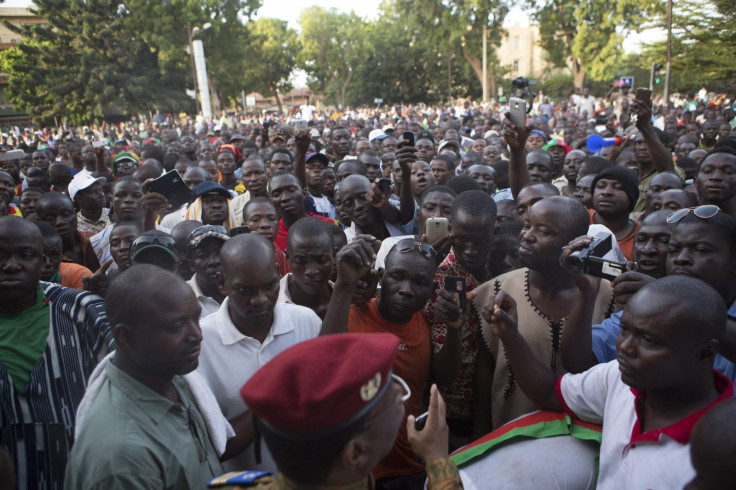Burkina Faso President Blaise Compaoré Defiant as Army Seizes Control

Burkina Faso President Blaise Compaoré has said he will not resign after the army took control of the landlocked African country following a day of violent protests.
Compaoré, in office for 27 years, has said he would stay on for the next 12 months to oversee the transition of power.
Anti-government protesters held rallies on Thursday in capital Ouagadougou and set the parliament building ablaze to halt the elections in which Compaoré is seeking a fifth term in office.
Army General Honoré Traoré, after holding several rounds of talks with opposition political leaders and military officials, announced a transitional government will be in place but did not reveal how the process is carried out.
The military chief said a nationwide curfew will come into force between 21:00 and 06:00 local time.
Opposition leaders have stressed they want Compaoré to step down. Zéphirin Diabré, the leader of the opposition, told Radio Omega: "The state of emergency is unacceptable. We are calling on the people to show that they are against it. The resignation of President Blaise Compaoré is the only thing that can bring peace to the country."
Shortly after the army seized power, the president addressed the nation in recorded televised remarks broadcast by a local network.
Compaoré, a former coup leader, hailed the army's move as "patriotic action" and vowed to stay in power until a democratically elected government is in place. He also said the government will withdraw a piece of contentious legislation which would have allowed him to run for another term.
"I am available to open discussions with all parties," said the embattled leader.
Nonetheless, it is still unclear whether the army would allow Compaoré, often Africa's peacemaker and pointman for several political negotiations, to stick to power. Though neighbouring nations such as Mali and Guinea are rocked by political instability and crisis Burkina Faso, a former French colony, has remained relatively stable all through his years at the helm.
UN Secretary-General Ban Ki-moon has appealed for calm in Burkina Faso. The Un chief's spokesperson said in a statement: "He calls on all parties to end the use of violence, exercise calm and restraint, and use dialogue to resolve all outstanding issues. The Secretary-General is saddened over the loss of life resulting from recent events."
The UN chief is also sending the special envoy for West Africa to Burkina Faso to deal with the crisis.
© Copyright IBTimes 2024. All rights reserved.






